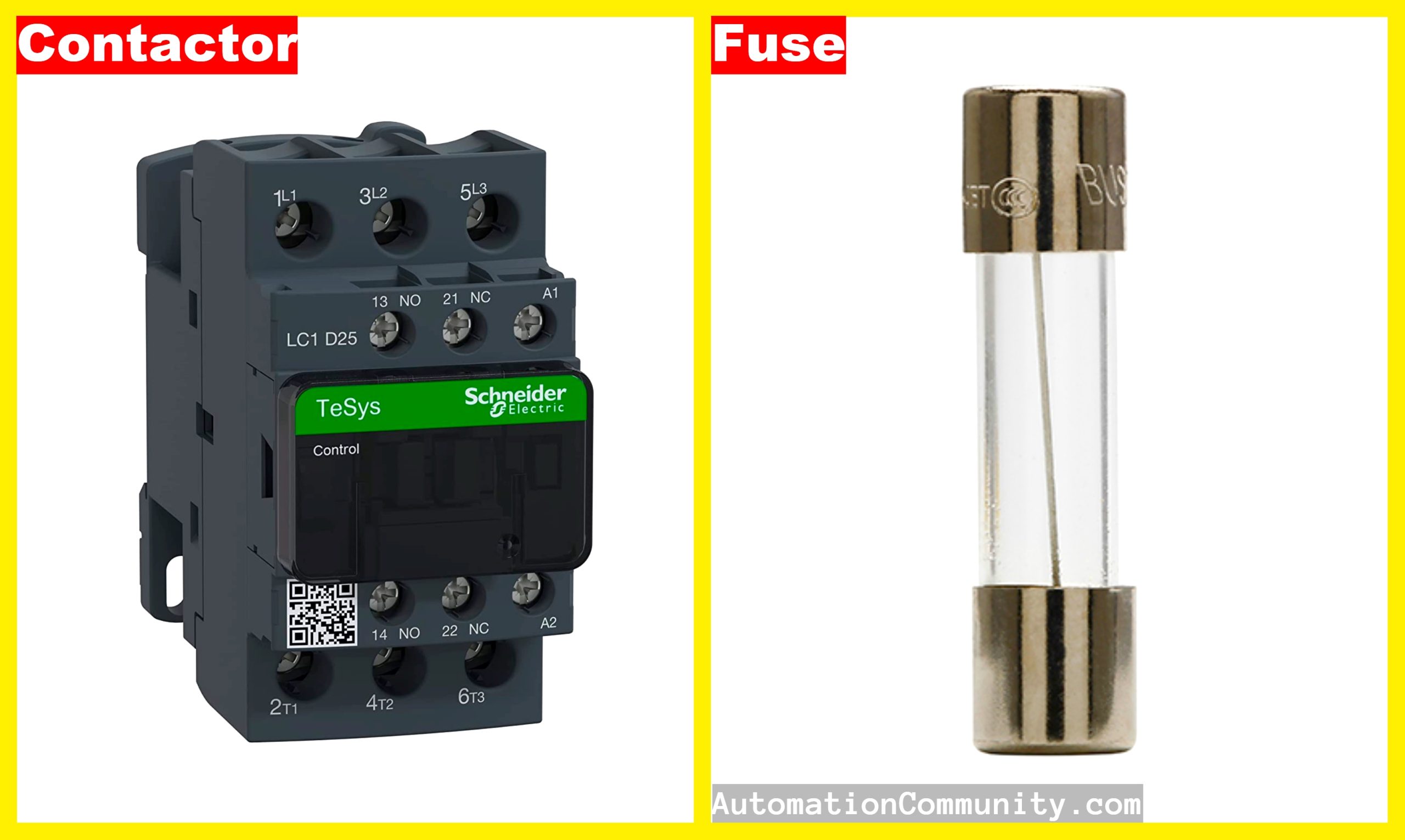Difference Between Contactor and Fuse
The contactors and fuses are two different types of electrical components that serve different purposes in electrical systems. In this article, you will learn the difference between a contactor and fuse.
What is a Contactor?
A contactor is an electrically controlled switch used for switching a power circuit, similar to a relay. A Contactor is typically used for switching high-voltage or high-current circuits, and it is often used to control motors, lighting, or other electrical loads.
Contactors are commonly used in industrial and commercial applications and can be controlled by a low-voltage control circuit, like a PLC.
What is a Fuse?
A fuse, on the other hand, is a safety device that is used to protect electrical circuits from overcurrent. Fuses are designed to “blow” or open the circuit when the current flowing through them exceeds a certain level.
This helps to prevent damage to the circuit or equipment and reduce the risk of fire. Fuses are commonly used in residential, commercial, and industrial applications to protect against electrical overloads.
Difference Between Contactor and Fuse

The below table shows the comparison between a fuse and a contactor.
| Description | Fuse | Contactor |
| Purpose | Control high-voltage/current circuits | Protect against electrical overloads |
| Operation | Electrically controlled switch | Blows or opens the circuit when the current exceeds a certain level |
| Control | Controlled by low-voltage control circuits like PLC | Not Controlled |
| Applications | Industrial and commercial | Residential, commercial, and industrial |
| Protection | Protection of equipment | Protection of electrical circuits |
| Life | Longer life compared to fuse | Shorter life compared to the contactor |
| Voltage rating | High Voltage | Low Voltage |
| Current rating | High Current | Limited current |
| Cost | More expensive | Less expensive |
| Size | Larger in size | Smaller in size |
| Maintenance | Need regular maintenance | No regular maintenance required |
| Failure mode | Mechanical failure | Thermal failure |
Conclusion
In summary, a contactor is an electrically controlled switch that is used to switch large electrical loads on and off, while a fuse is an overcurrent protection device that automatically opens a circuit when it senses an overcurrent.
Contactors are often used to control motors, heating equipment, and other heavy-duty loads, while fuses are used to protect smaller circuits.
Read Next:












